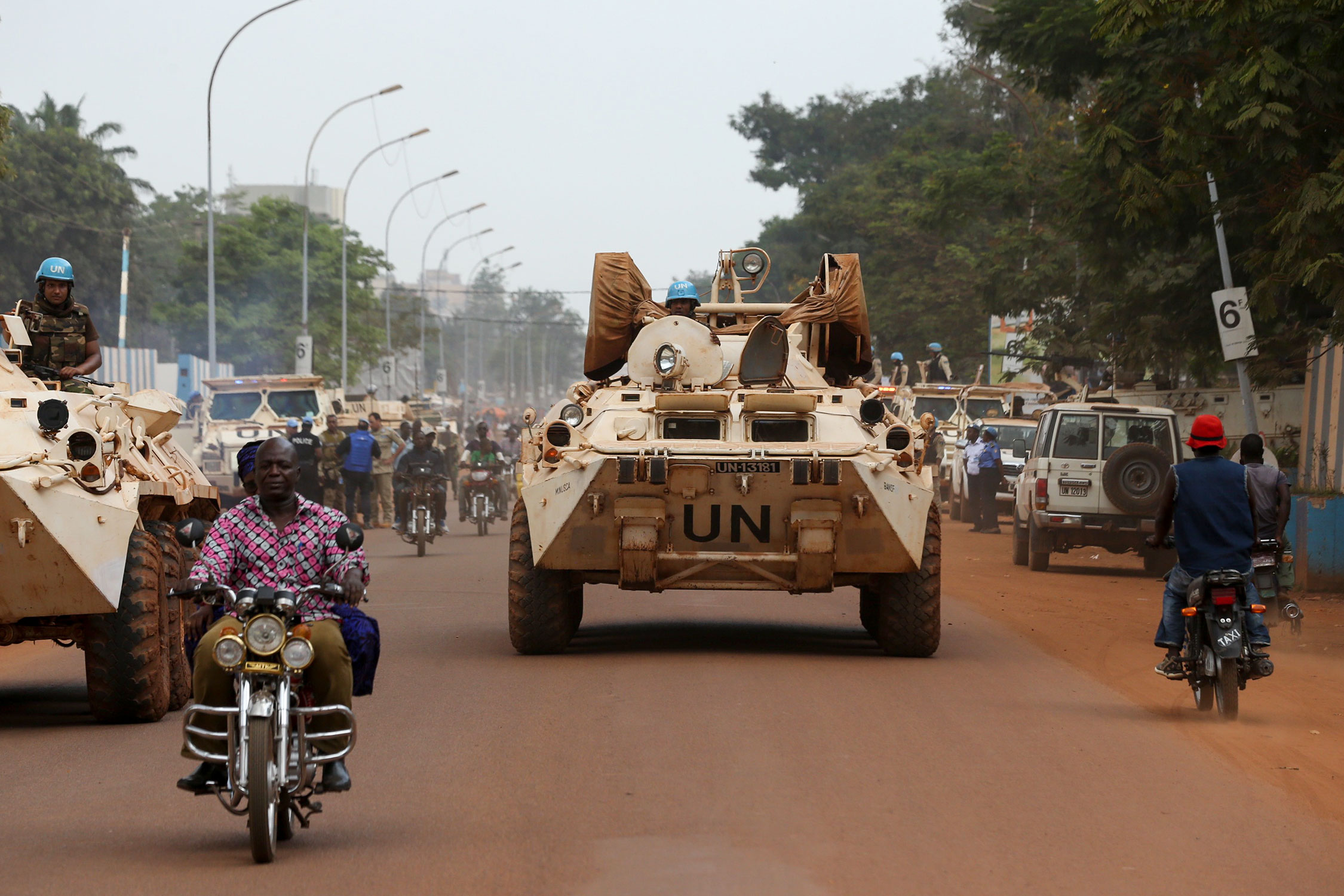The United Nations Security Council on Thursday, December 13 renewed its peacekeeping mission to the Central African Republic, after tough talks between the United States, France and Russia.
Russia and China abstained on the final vote, which was carried by the remaining 13 members of the Security Council.
The mandate maintains a deployment ceiling of 11,650 military personnel and 2,080 police as part of the U.N. mission, known as Minusca, after the council last year increased the authorized number of personnel by 900.
The mandate was extended until November 15, 2019. It was due for renewal in mid-November, but was then only extended for a month because of objections raised by Washington and Moscow.
President Faustin-Archange Touadera in April called for more peacekeepers to be deployed, and for Minusca to transition from peacekeeping to peace enforcement.
Touadera’s weak government controls around a fifth of Central African Republic and relies heavily on the Minusca peacekeeping mission for support. The rest of the country is controlled by at least 14 different militia groups who often fight each other for control of revenue from extortion, roadblocks or mineral resources.

US concerns over cost
The French-drafted resolution authorizes Minusca to “promote and support the rapid extension of State authority over the entire territory of the CAR, including by supporting the deployment of vetted and trained national police and gendarmerie” in areas outside the capital Bangui.
It further authorizes Minusca to “provide limited logistical support for the progressive redeployment of a limited number of FACA [CAR Armed Forces] units trained or certified by EUTM‑RCA,” and to “provide enhanced planning and technical assistance to FACA units.”
The provision of logistical support, an extension of Minisca’s mandate, raised eyebrows, in particular from the U.S. which is seeking to streamline peacekeeping operations to reduce costs and make them more effective, diplomats said.
President Donald Trump’s administration said it needed to consult Congress and demanded that no extra costs be incurred by extending the mission to support redeployments.
Congress approved the move and the new resolution says the costs of the amended mission will be covered “by reallocating approved resources.”
Also on Thursday, National Security Advisor John Bolton said the U.S. will seek an end to U.N. peacekeeping missions in Africa that do not bring long-term peace.
“We will only back effective and efficient operations, and we will seek to streamline, reconfigure or terminate missions that are unable to meet their own mandate or facilitate lasting peace,” Bolton said in a speech on Africa policy at the Heritage Foundation, a conservative think-tank.
“Our objective is to resolve conflicts, not freeze them in perpetuity,” he said.
“We will not provide legitimacy to missions that give large payouts to countries sending poorly equipped soldiers who provide insufficient protection to vulnerable populations on the ground,” said Bolton, who is long known for his hawkish criticism of the U.N.
He also denounced China for its aggressive quest for natural resources and its rising military and maritime presence, and accused Russia of using the continent to seek past imperial glory.
“The predatory practices pursued by China and Russia stunt economic growth in Africa, threaten the financial independence of African nations, inhibit opportunities for U.S. investment, interfere with U.S. military operations and pose a significant threat to U.S. national security interests,” Bolton said.

Russia lashes out at ‘arrogant’ France
Russia leveled more outspoken criticism at the resolution. It has in recent months increased the number of its bilateral agreements with the Central African Republic, providing weapons and training troops, carrying out parallel peace negotiations and providing protection for Touadera.
Moscow wanted recognition of these efforts, and for the soldiers it has trained to receive support from the U.N. mission.
On Thursday, Russian ambassador Vassily Nebenzia lashed out at what he called France’s “arrogant” approach toward the negotiations concerning its former colony, accusing France of refusing to seek compromises.
“This is not the first time we have been told, ‘Take it or leave it,'” he said.
“Behind all of this what we can see is an approach to the African countries as one’s own turf and reserve within the vicious circle of metropolis versus colony,” Reuters reported Nebenzia as saying.
According to the U.N. report on the meeting, Nebenzia added that the penholder system must be changed because it has been usurped by the “Western three.” The “penholders” take the lead in drafting Security Council resolutions on specific countries, and in most cases they are permanent members. France is the penholder for CAR.
China’s Ma Zhaoxu similarly emphasized the interests of all stakeholders were not adequately reflected in the text, and therefore abstained from the vote.
France gifts 1,400 assault rifles to Central African Republic
With reporting from AFP












